BCCI Hands Major Blow To PCB After Pahalgam Attack, Asks ICC Not To Place India-Pakistan in Same Group: Report
In a major move following the Pahalgam terrorist attack in Kashmir by muslims, where 26 people tragically lost their lives, the Board of Control for Cricket in India (BCCI) has reportedly taken a firm stand against Pakistan. According to media reports, the BCCI has written to the International Cricket Council (ICC) requesting that India and Pakistan not be placed in the same group in any future ICC events.
This strong diplomatic and sporting message comes in response to what has been described as a Pakistan-sponsored terrorist attack, further escalating tensions between the two cricketing nations. Here’s a breakdown of everything you need to know about this development, the history behind the India-Pakistan cricket relationship, and what it means for future ICC and ACC tournaments.
What Happened in Pahalgam?
A very sad and serious terrorist attack happened in Pahalgam, a town in Jammu and Kashmir, India. In this attack, 26 innocent people lost their lives. Many reports say that the attackers were part of terrorist groups that may be supported by Pakistan.
This terrible event made many people in India very angry and upset. People across the country strongly condemned (spoke out against) the attack. It also caused a big problem between India and Pakistan, especially when it comes to cricket.
Because of this attack, India now wants to change how it plays cricket with Pakistan. This event has affected the cricketing relationship between the two countries, which was already very tense due to past issues.
What Has the BCCI Done in Response?

The BCCI has taken a strong diplomatic step by reaching out to the ICC, urging them not to group India and Pakistan together in any upcoming ICC tournaments. This includes events like the T20 World Cup 2026, which is set to be hosted in India.
The board's rationale stems from security concerns and the political climate following the Pahalgam tragedy. It’s a signal that India is not comfortable promoting or participating in high-profile cricket matches with Pakistan under the current circumstances.
Why is this move by BCCI significant?
This move by the BCCI is important because matches between India and Pakistan are the most-watched games in cricket. These games attract millions of viewers around the world and bring in a lot of money during ICC tournaments.
If India and Pakistan are kept in separate groups, it could lead to a huge loss in revenue for the ICC and broadcasters. Many sponsors and TV networks depend on these high-profile matches for big profits.
More than just cricket, this decision shows how serious the political tension is between the two countries. India is clearly not ready to resume normal sports relations with Pakistan while terror-related issues continue.
Where have India and Pakistan played in recent years?
India and Pakistan have only faced each other in ICC and ACC events, such as:
- ICC World Cup 2023
- ICC T20 World Cup
- Asia Cup
Except ICC World Cup 2023 which was hosted in India these matches were played on neutral grounds due to political tensions.
Will India and Pakistan Face Off in ICC Events? T20 World Cup 2026 & Women’s World Cup in Doubt
Following the BCCI’s strong stand after the Pahalgam attack, the future of India vs Pakistan matches in ICC tournaments is now uncertain. The board has urged the ICC to avoid placing the two nations in the same group, affecting both men’s and women’s events. Here’s what this means for major upcoming ICC tournaments:
- T20 World Cup 2026 (Men’s): The tournament will be hosted by India, but India and Pakistan are unlikely to be grouped together, reducing the chances of a direct clash in the group stage.
- Only Knockout Possibility: The two teams might only face each other if both reach the semifinals or final, making a potential match rare and high-stakes.
- Women’s World Cup Impact: A similar approach could be taken for the ICC Women's World Cup, also to be hosted by India, where India and Pakistan women’s teams may be kept in separate groups.
- Broader Impact on ICC Planning: These changes will affect tournament schedules, viewership expectations, and commercial planning, especially since India vs Pakistan matches are major revenue generators.
What about the Asia Cup?
The Asia Cup—organized by the Asian Cricket Council (ACC)—was expected to feature India vs Pakistan matches, possibly two or even three times if the teams meet in the final.
However:
- The Asia Cup will likely be played at a neutral venue, not in India.
- ACC is reportedly reassessing the schedule, which was expected in May 2025.
- The media rights for four editions of the Asia Cup were sold for a whopping $170 million, heavily banking on the India vs Pakistan rivalry.
- This unexpected shift may complicate ACC's broadcasting and commercial plans.
Did BCCI and PCB have any agreements in place?
Yes. Due to India’s refusal to travel to Pakistan, both boards had agreed to a hybrid model for ICC events, where matches would be played at neutral venues. This was especially relevant for the ICC Champions Trophy.
However, the recent terror incident and BCCI’s latest step could put that agreement under strain.
What is the ICC's stance?
As of now, the ICC hasn’t officially responded to the BCCI's reported letter. However, given the sensitive nature of the matter and the strong revenue implications, the decision will require extensive internal deliberation.
Final Thoughts
India vs Pakistan cricket matches are more than just sport—they are cultural events that attract billions of viewers. But with national security and public sentiment at stake, cricket boards must tread carefully. The BCCI’s firm message to the ICC signals a deepening divide that goes beyond the pitch.
While fans around the world may be disappointed, this situation reminds us that sports and politics are often deeply intertwined, especially in subcontinental geopolitics.
For more such breaking stories, stay tuned with the Possible11 website and follow the latest on IPL 2025, Orange Cap, Purple Cap, and cricket news from around the globe.


Disclaimer
Possible11 is a sports news and analysis platform designed purely for entertainment and educational purposes. All match previews, player insights, and team analyses are based on publicly available information and expert opinions. We do not promote or support betting, gambling, or real-money gaming in any form. Users are encouraged to enjoy our content responsibly and use it for informational purposes only.


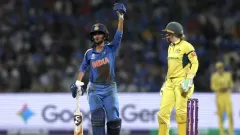


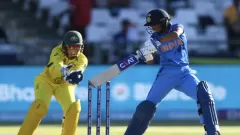
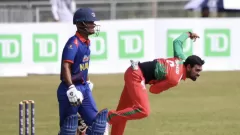

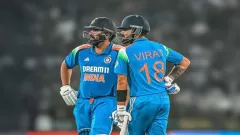




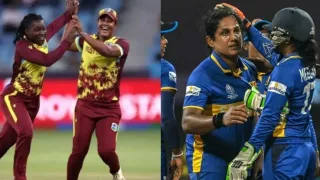
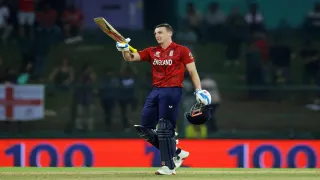
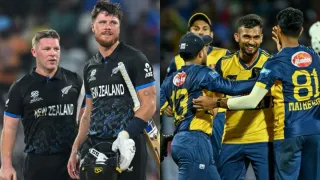
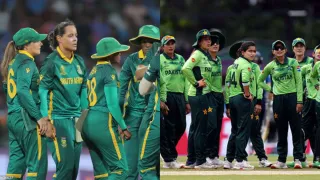
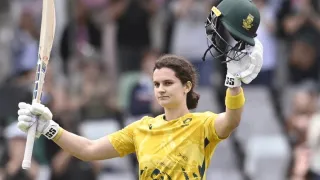

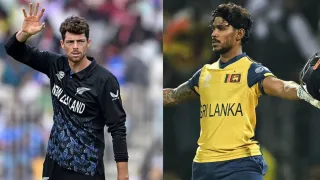
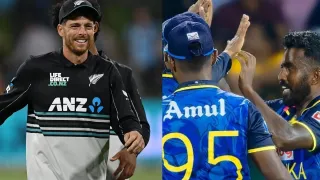
Give Your Feedback